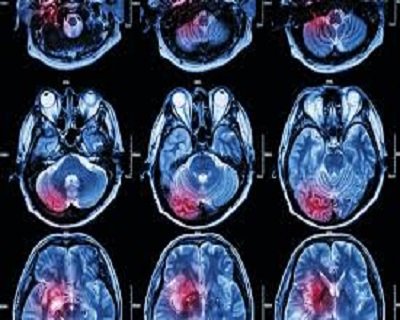Opening hours
| DR.KIRTI | |
| Mon-Sat : | 11am - 3pm |
| Evening : | 5pm - 7pm |
| Sunday : | 11am - 1pm |
| DR.AMBUJ | |
| Mon-Sat : | 9am - 10am |
| Evening : | 5pm - 7pm |
| Sunday : | with prior appointment only |
CONTACT INFO
- 1st floor, Aryan complex, Opp to panchwati ratnalaya, Gola road, Patna 801503
- +91 9934380782
- drambuj21@gmail.com

Brain Tumor Treatment
-
Brain tumor treatment involves various modalities, including surgery, radiation therapy, and chemotherapy, tailored to the tumor type and individual patient needs.
Description
-
The management of brain tumors from a doctor's perspective involves a multidisciplinary approach to provide the best possible care for patients facing this challenging diagnosis. Here's a detailed overview:
Diagnosis: The journey begins with a thorough evaluation of the patient's medical history and a comprehensive neurological examination. Advanced imaging techniques like MRI and CT scans are used to visualize the tumor's location, size, and characteristics. Additional tests, such as a biopsy, may be required to determine the tumor type and grade.
Tumor Classification: Identifying the specific type of brain tumor is crucial, as treatment strategies vary significantly. Brain tumors can be primary (originating in the brain) or secondary (metastatic from another organ). Primary tumors are further classified into gliomas, meningiomas, pituitary adenomas, and others based on their tissue of origin.
Treatment Planning: Once the tumor is characterized, a team of specialists, including neurosurgeons, oncologists, radiation oncologists, and neurologists, collaborates to create an individualized treatment plan. The plan takes into account factors like tumor size, location, patient's overall health, and the tumor's response to treatment.
Surgery: Surgery is often the initial step for accessible tumors. Neurosurgeons aim to remove as much of the tumor as safely possible, taking care to preserve surrounding healthy brain tissue. In some cases, complete removal may not be feasible due to the tumor's location or type.
Radiation Therapy: Radiation therapy, either external beam or stereotactic radiosurgery, may be recommended to target residual tumor cells or in cases where complete surgical removal is not possible. This therapy uses high-energy radiation to destroy cancer cells.
Chemotherapy: Some brain tumors respond to chemotherapy, either oral or intravenous drugs. Chemotherapy is often used in combination with surgery and radiation therapy, especially for high-grade gliomas.
Targeted Therapy and Immunotherapy: Emerging treatments like targeted therapy and immunotherapy are being explored in clinical trials for specific brain tumor types. These therapies aim to target cancer cells more precisely while sparing healthy tissue.
Supportive Care: Patients with brain tumors may experience various symptoms such as headaches, seizures, cognitive changes, and neurological deficits. Symptomatic management and supportive care are essential aspects of treatment to enhance the patient's quality of life.
Rehabilitation: After treatment, rehabilitation programs may be recommended to help patients regain lost functions and improve their quality of life. This may include physical therapy, occupational therapy, and speech therapy.
Long-term Monitoring: Brain tumor patients require long-term follow-up to monitor for any recurrence or treatment-related side effects. Regular imaging scans and neurological assessments are crucial for early detection and intervention if needed.
Psychosocial Support: Coping with a brain tumor diagnosis can be emotionally challenging. Psychosocial support, including counseling and support groups, can help patients and their families navigate the emotional and psychological aspects of their journey.
In summary, the management of brain tumors is a complex and multifaceted process that combines medical expertise, advanced technology, and a patient-centered approach to provide the best possible care and support for individuals facing this serious condition. Each case is unique, and treatment plans are tailored to the specific needs and circumstances of the patient.
Gynecologist
- CESAREAN DELIVERIES
- HYSTERECTOMIES
- INFERTILITY TREATMENT
- POSTMENOPAUSAL SYMPTOM
MANAGEMENT - CERVICAL CANCER SCREENING ...
Neurologist
- HEADACHE TREATMENT
- BACKACHE MANAGEMENT
- SPINE INJURY CARE
- HEAD INJURY TREATMENT
- SEIZURE DISORDER CARE
- SLIP DISC CARE ...
